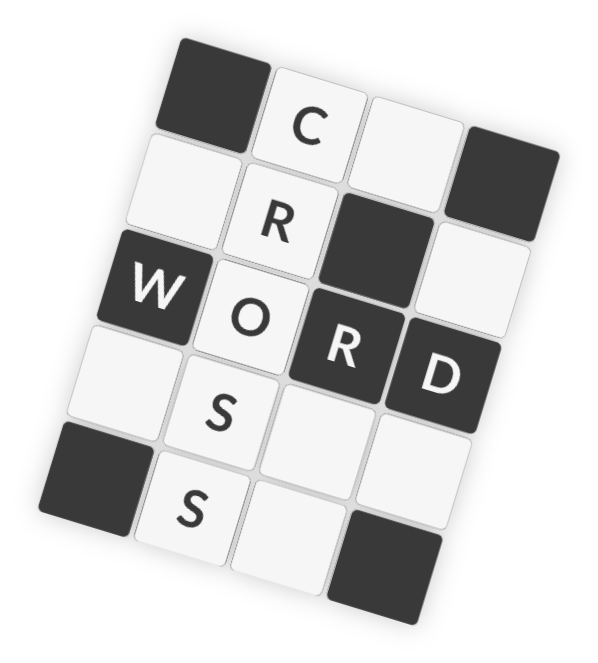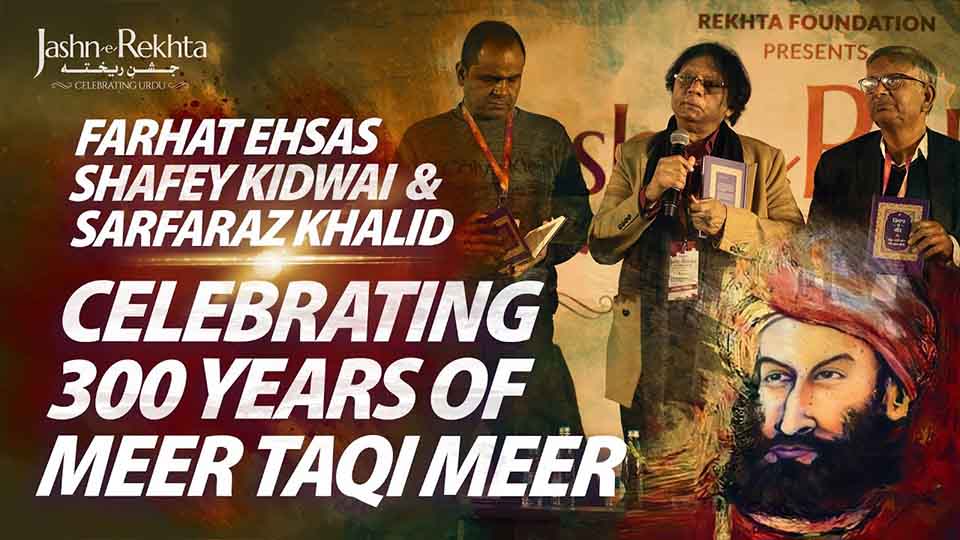Urdu Poetry, Urdu Shayari of Famous Poets - Rekhta (original) (raw)
Today's top 5 Urdu Shayari
dekh zindāñ se pare rañg-e-chaman josh-e-bahār
raqs karnā hai to phir paañv kī zanjīr na dekh
dekh zindan se pare rang-e-chaman josh-e-bahaar
raqs karna hai to phir panw ki zanjir na dekh
chāhiye us kā tasavvur hī se naqsha khīñchnā
dekh kar tasvīr ko tasvīr phir khīñchī to kyā
chahiye us ka tasawwur hi se naqsha khinchna
dekh kar taswir ko taswir phir khinchi to kya
terī nigāh to is daur kī zakāt huī
jo mustahiq hai usī tak nahīiñ pahuñchtī hai
teri nigah to is daur ki zakat hui
jo mustahiq hai usi tak nahiin pahunchti hai
baḌe vasūq se duniyā fareb detī rahī
baḌe ḳhulūs se ham e'tibār karte rahe
baDe wasuq se duniya fareb deti rahi
baDe KHulus se hum e'tibar karte rahe
maiñ kisī se apne dil kī baat kah saktā na thā
ab suḳhan kī aaḌ meñ kyā kuchh na kahnā aa gayā
main kisi se apne dil ki baat kah sakta na tha
ab suKHan ki aaD mein kya kuchh na kahna aa gaya
URDU POETRY COLLECTION
Compilation of top 20 hand-picked Urdu shayari on the most sought-after subjects and poets
URDU CROSSWORD
Rekhta's online crossword puzzle - the world's first Urdu online crossword for free. Developed in collaboration with Amuse Labs, these puzzles are specially designed to improve your knowledge of Urdu language, literature, and culture. Challenge yourself with new crosswords and engage in playful learning.

BUY HINDI & URDU BOOKS
Get latest Urdu books & Hindi books online only on Rekhtabooks.com
Quiz A collection of interesting questions related to Urdu poetry, prose and literary history. Play Rekhta Quiz and check your knowledge about Urdu!
How many dots are there on the Urdu letter Be?
2 3 1



Rekhta App : World’s largest collection of Urdu poetry
DID YOU KNOW ?
In Urdu, the word ‘Mallah’ means a sailor or mariner. The word finds its roots in the Arabic word ‘Milh’, meaning salt. Since seawater is salty, those who made salt from the sea were originally called Mallah. Later, those who frequented the sea came to be known as Mallah. And now, boatmen of sweet-water lakes are referred to as Mallah, too. The word ‘Malahat’, quite common in Urdu literature, is also related to ‘Milh’, it means being salty, sallow, or beautiful. Poets have brought out different shades of this word in various couplets.
Another word which is very common in Urdu poetry, and related to boat and water voyage, is NaaKhuda’. It is a combination of two words ‘Naav (boat)’ and ‘Khuda (Lord)’, and comes from Persian, it means the Lord of the boat or captain.
tumhii.n to ho jise kahtii hai naaKHudaa duniyaa
bachaa sako to bachaa lo ki Duubtaa huu.n mai.n
DID YOU KNOW ?

The general notion about Mir Taqi Mir is that he was a heartbroken man who only wrote couplets of sorrow and pain. But few bring to light his fondness of animals- which is quite manifest in his creative Masnavis and autobiographical poems. Other poets have also written about animals, but in Mir's couplets animals have a human aspect about them, they depict various human shades and attributes. The characterization of a cat in his Nazm ‘Mohni Billi’ is quite evident, and in ‘Kapi Ka Bachcha’, the baby monkey gives the feeling of a human. Mir’s Masnavi ‘Mor-Nama’, is a tragic story of the love of a queen and a peacock, in which both are burnt to death. Apart from this, he also has poems on chicken, goat, etc.
His famous Masnavi ‘Azhdar-Nama’ is full of mentions of animals, their habits, and characteristics. In addition to the main character which is a dragon, it includes 30 different animals. Muhammad Hussain Azad has written that Mir has suggested at himself being the dragon, and considered all other poets as insects of the earth. However, no mention of any poet’s name is found in it.
DID YOU KNOW ?
With respect to idioms and proverbs, Urdu is a very rich language. Ghazal poets, in particular, have helped in fortifying these idioms. In the lexicon, Farhang-e-Asifia, the idioms relating to the word ‘Aankh (eye)’ are spread over 45 pages. Along with it, many couplets and given as examples, to help readers easily understand the meanings of these idioms. Some of the idioms in Urdu poetry come from Persian, but most are purely Indian. In Dagh Dehlvi’s poetry, the effortless use of idioms and everyday speech reached a crescendo. A book named ‘Muhawarat-e-Dagh’, by Wali Ahmad Khan (1944), illustrates thousands of couplets in which various idioms have been used with their finest vividness in Urdu poetry; most of these idioms include Aankh. Dr. Abdul Moaz Shams, a skilled eye surgeon, and connoisseur of literature published a 400-page book named ‘Aankh Aur Urdu Shairi (2018)’ depicting several couplets by distinguished poets featuring idioms relating to the eye.
DID YOU KNOW ?
The proverb ‘Haath Kangan ko Aarsi Kya’ is quite common, but do you know what an Aarsi is exactly? Well, it was a ring worn on the thumb by women of earlier times that had jewels surrounding a mirror in its center. Women used to keep a check on their makeup by looking into it. In Urdu poetry, Aarsi is a theme that’s been extensively explored:
Aaiina saamne na sahii aarsi to hai
Tum apne muskuraane kaa andaaz dekhnaa
Going back to the proverb ‘Haath Kangan ko Aarsi Kya’, it literally means that to check the Kangan (bangles) worn on the hand, there is no need to look into the mirror; for they are right in front of the eyes. Figuratively, the proverb is used to point out something so obvious that there is barely a need to put it out explicitly. Further, the proverb has also been extended into the following:
‘Haath Kangan ko Aarsi Kya, PaDhe likhe ko Farsi Kya’
Interestingly, there is also a ritual in marriages called "Arsi Mus’haf" in which the bride and groom are seated face to face with a dupatta is placed on their head and a mirror is placed in the middle. The two look at each other’s face, reciting a Surah of the Qur'an. Mus’haf refers to the Holy Qur'an itself.
DID YOU KNOW ?
Poetry that’s recited without a Tarannum (tune) is known as ‘Taht-ul-Lafz’, or differently, ‘Taht Mein Padhna’. If read in Tarannum, the reciter’s tone and voice largely draw the attention of the audiences. However, in Taht-ul-Lafz, one enjoys the full effect of poetry with the grandeur of words and the crescendo of the rise and fall of the reciter’s voice. Although Taht-ul Lafz recitation is common in Mushairas, but those who recited Marsiyas (elegies) in this manner in mourning assemblies, turned it into a dramatic artform. A contemporary of famous Marsiya-reciter Meer Anis, and who didn’t find favor with Anis’s Marsiya composition, wrote:
“Ek martaba Ittefaqan Anis Ki Majlis mein shirkat hui. Marsiye Ke doosre hi band ki Bait…
Saato.n Jahannum Atish-e-Furqat mein jalte hain
Sho’le tirii talaash mein baahar nikalte hain
… Anis ne is andaz se paDhi ki mujhe sho’le bhadakte hue dikhai dene lage aur main un ka padhna-sunna mein aisa mahv hua ki tan-badan kaa hosh na rahaa.”
When new poetry appeared in the form Azad Nazm, it found no takers as no one seemed willing to listen to it. Then, Famous actor and broadcaster Zia Mohiuddin experimented with reciting Noon Meem Rashid's poems at various events. He recited some of these poems in such a way that the listeners, for whom these poems were ambiguous, meaningless and far from poetry, they too became enchanted by them; even managing to discover in those poems a bit of poetry.
SHAYARI COLLECTION
Celebrating
BIRTH ANNIVERSARY
One of the most lyrical of ghazal poets associated with progressive movement. Outstanding film lyricist. Recipient of Dada Sahab Phalke award.
yuuñ to aapas meñ bigaḌte haiñ ḳhafā hote haiñ
milne vaale kahīñ ulfat meñ judā hote haiñ
yun to aapas mein bigaDte hain KHafa hote hain
milne wale kahin ulfat mein juda hote hain
RECOMMENDED POETS
Essential collection of Iconic poets – a list that goes beyond the realm of fame and populism
Rekhta blog
Featured Video
This video is playing from YouTube

E-Books Library
Iqbal Dulhan
Bashiruddin Ahmad Dehlvi
1908 Moral and Ethical
Mughal Tahzeeb
Mahboob-Ullah Mujeeb
1965
Shumara Number-002
Mohammad Hasan
1970 Asri Adab
Kulliyat-e-Anwar Shaoor
Anwar Shuoor
2015 Kulliyat
Audhoot Ka Tarana
1958 Nazm
Discover books & magazines in the world’s largest online collection of Urdu literature
More from Rekhta
हिन्दवी डिक्शनरी
हिंदी क्षेत्र की भाषाओं-बोलियों का व्यापक शब्दकोश
Books Bazaar
Buy Urdu & Hindi books online
Hindi Literature
A vibrant resource for Hindi literature
Sufi Literature
A feature-rich website dedicated to sufi-bhakti tradition
Rekhta Dictionary
A trilingual dictionary of Urdu words
Urdu Festival
The world's largest language festival
e-Learning Platform
Get a unique experience of learning language, literature & culture
Jashn-e-Rekhta | 13-14-15 December 2024 - Jawaharlal Nehru Stadium , Gate No. 1, New Delhi